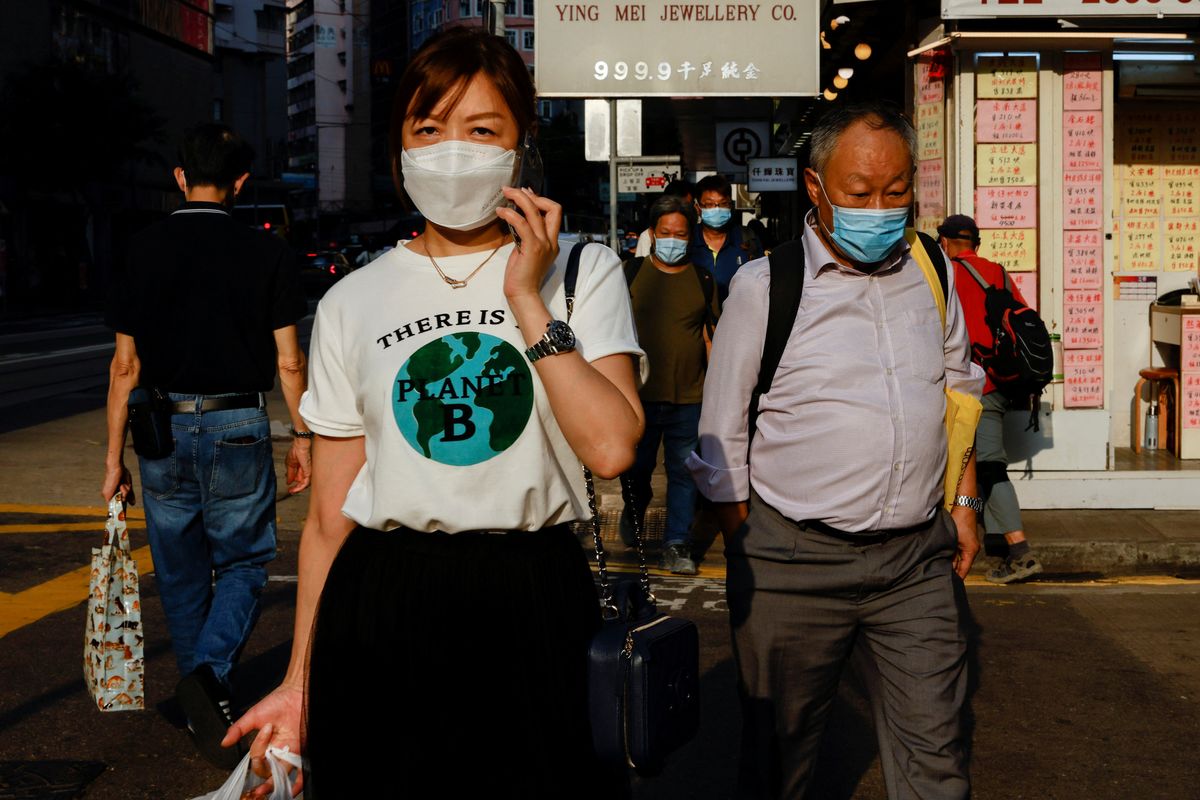Hong Kong ends world’s longest mask mandate
It's been almost three years since Hong Kong put its mask mandate in place.

A few minutes every morning is all you need.
Stay up to date on the world's Headlines and Human Stories. It's fun, it's factual, it's fluff-free.
The backstory: It's been almost three years since Hong Kong put its mask mandate in place, and it's one of the last major cities to have one still. The mask rule has been around for 959 days, starting on July 15, 2020, for public transport and expanding from there. Under the mandate, if you're caught without a mask, you could face fines of up to HK$10,000 (US$1,275). This has been just one of the city's strict COVID policies. At one point, Hong Kong also had a travel quarantine, requiring up to 21 days of isolation in a hotel room.
More recently: Hong Kong (and Greater China) have been looking to ease COVID restrictions, restore normal travel and reboot the economy. Over the past few months, the Hong Kong government has taken bigger steps to open back up, like lifting quarantine requirements and resuming international travel. In March, Hong Kong is set to host several international events, like Art Basel and the Rugby Sevens.
The development: On Tuesday, Hong Kong's Chief Executive John Lee announced the mask mandate would be lifted completely starting Wednesday, March 1. With this change, the city joins other places in Asia, like South Korea, Japan and Taiwan. The mask mandate was Hong Kong's last major COVID restriction. Masks may still be required in high-risk places, like hospitals and elderly homes, but this is up to management.
Key comments:
"From tomorrow we are completely returning to normalcy," chief executive John Lee said. "This year and the next year, we will focus on the economy and development."
"I'm looking forward to seeing a smile on everyone's face now," said Hong Kong's Health Secretary Lo Mau-chung on Tuesday.
"Face masks have played an important role in reducing community transmission in Hong Kong but now that almost everyone is vaccinated and most people have also been infected, dropping the legal mandate is well past due," said Karen Grepin, an associate professor at the University of Hong Kong's School of Public Health. "People can now do their own risk assessment to determine if they want to wear one or not."




Comments ()